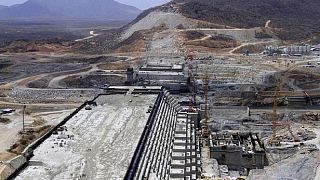Egypt
Egyptian President Abdel Fattah al-Sisi has invited Ethiopian Prime Minister Abiy Ahmed to visit Cairo for more talks on the issue of the Grand Ethiopian Renaissance Dam (GERD).
Sisi, who on Wednesday said a breakthrough had been reached in talks with Sudan and Ethiopia, added that more time was needed to resolve the dispute over a $4 billion-hydroelectric dam.
‘‘Negotiations with our brothers in Sudan and Ethiopia will require effort and time from [all sides] so we can come to the terms and reach an understanding that allows us to maintain our share (of the Nile’s water) and allow them to benefit from the dam for the development that they seek,’‘ Sisi said.
Egypt fears the project will reduce waters that run to its fields and reservoirs from the Nile river in Ethiopia’s highlands and via Sudan.
The Tuesday meeting held in Addis Ababa, that was attended by irrigation ministers and intelligence chiefs from the three countries agreed to set up a scientific committee that will focus on the operation of the dam and the speed with which the reservoir is filled.
They also agreed to have the French firm that authored a disputed technical report on the project to answer questions from the three countries on June 18 or 19.
Ethiopia’s Grand Renaissance Dam project on the Blue Nile, launched in 2012, is designed to feed a hydroelectric project to produce 6,000 megawatts of power, equal to six nuclear-powered plants.
The Blue and the White Nile tributaries converge in Sudan’s capital Khartoum and from there run north through Egypt to the Mediterranean.







![[Explainer] Colonial agreements governing Nile waters can't stop Ethiopia – former PM](https://static.euronews.com/articles/461205/320x180_461205.jpg)






Go to video
Kenya set to surpass Ethiopia as East Africa’s largest economy in 2025 – IMF
01:42
Cairo service honours Pope Francis' legacy
Go to video
Egypt FM Abdelatty: Egypt is making "continuous, genuine and non-stop efforts” for ceasefire in Gaza
Go to video
Egypt: Coptic Catholics mourn Pope Francis
Go to video
Egyptian-UK activist Alaa Abdel Fattah gets sick on hunger strike in prison
Go to video
World Food Programme to halt aid for 650,000 women and children in Ethiopia